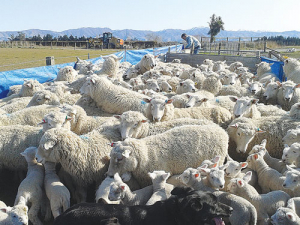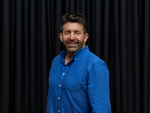Weaning is an ideal time to body condition score (BCS) ewes as it allows valuable summer feed to be partitioned into lighter ewes to give them a lift before tupping.
Beef + Lamb New Zealand’s general manager North Island, Matt Ward, says BCS is a cheap yet valuable way to save feed and improve flock performance.
Poor condition ewes (less than BCS 3) at mating are less likely to get pregnant in the first 17 days of breeding, they will have lower scanning percentages and will have less buffering in late pregnancy and lactation resulting in lighter lambs at weaning.
Ward says the key drivers of profit in a sheep flock are kilograms of lamb weaned per hectare, weaning weight per lamb and the number of lambs weaned per hectare – and ewe body condition impacts on all three.
Ideally, ewes should be maintained at a BCS 3 or 4 all year round, but lactation, pregnancy, mob pressure and competition for feed will see some ewes falling below this.
“Body condition scoring at weaning, mating and scanning will allow lighter ewes to be identified so they can be priority fed or culled,” he says. “It’s about minimising the number of tail-end ewes (BCS 1 and 2) as these are the ones bringing down the overall flock performance.”
Ward says BCS is a way of comparing sheep independent of frame size, liveweight, breed, gut fill and stage of gestation. It relates to the production ability of sheep regardless of body weight.
It is done by assessing the amount of body fat by feeling the vertical (spine) and horizontal (short ribs) processes.
This is done by placing a hand behind the 13th rib, pushing fingers under the short ribs with pressure and finger on the spine.
BCS is based on a scale of one to five -- one being very skinny and emaciated and five being too fat.
Ward says getting exact numbers is not the main thing, but rather identifying ewes that fall below an optimum condition of 3, i.e. the BCS 1 and 2 ewes.











